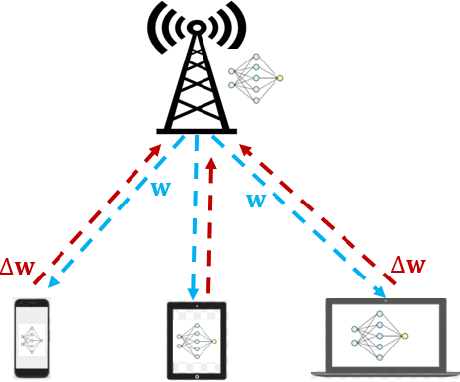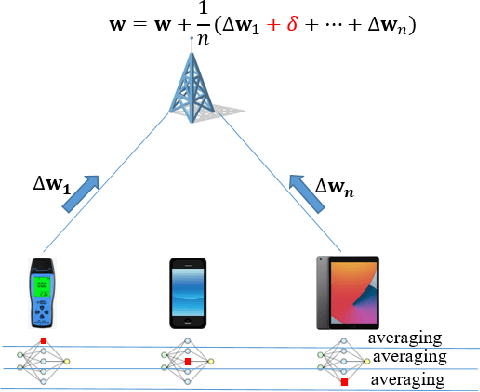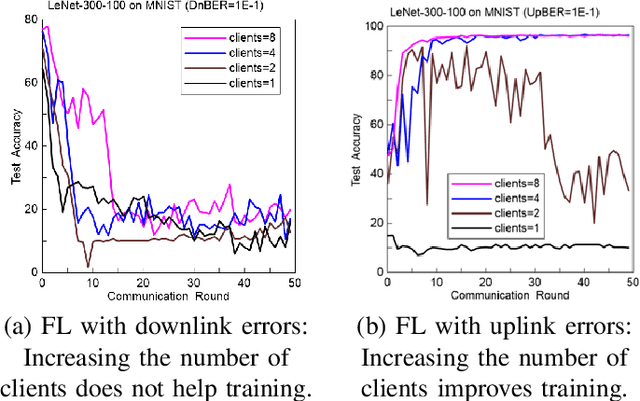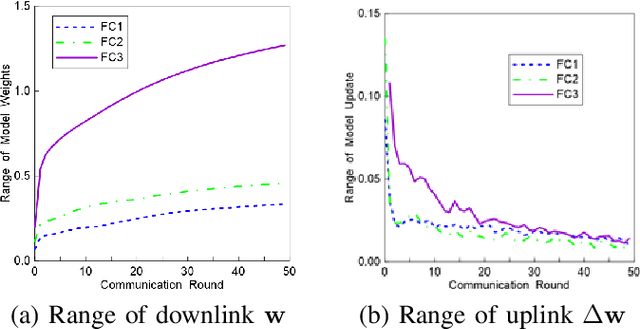How Robust is Federated Learning to Communication Error? A Comparison Study Between Uplink and Downlink Channels
Paper and Code
Oct 25, 2023



Because of its privacy-preserving capability, federated learning (FL) has attracted significant attention from both academia and industry. However, when being implemented over wireless networks, it is not clear how much communication error can be tolerated by FL. This paper investigates the robustness of FL to the uplink and downlink communication error. Our theoretical analysis reveals that the robustness depends on two critical parameters, namely the number of clients and the numerical range of model parameters. It is also shown that the uplink communication in FL can tolerate a higher bit error rate (BER) than downlink communication, and this difference is quantified by a proposed formula. The findings and theoretical analyses are further validated by extensive experiments.
 Add to Chrome
Add to Chrome Add to Firefox
Add to Firefox Add to Edge
Add to Edge